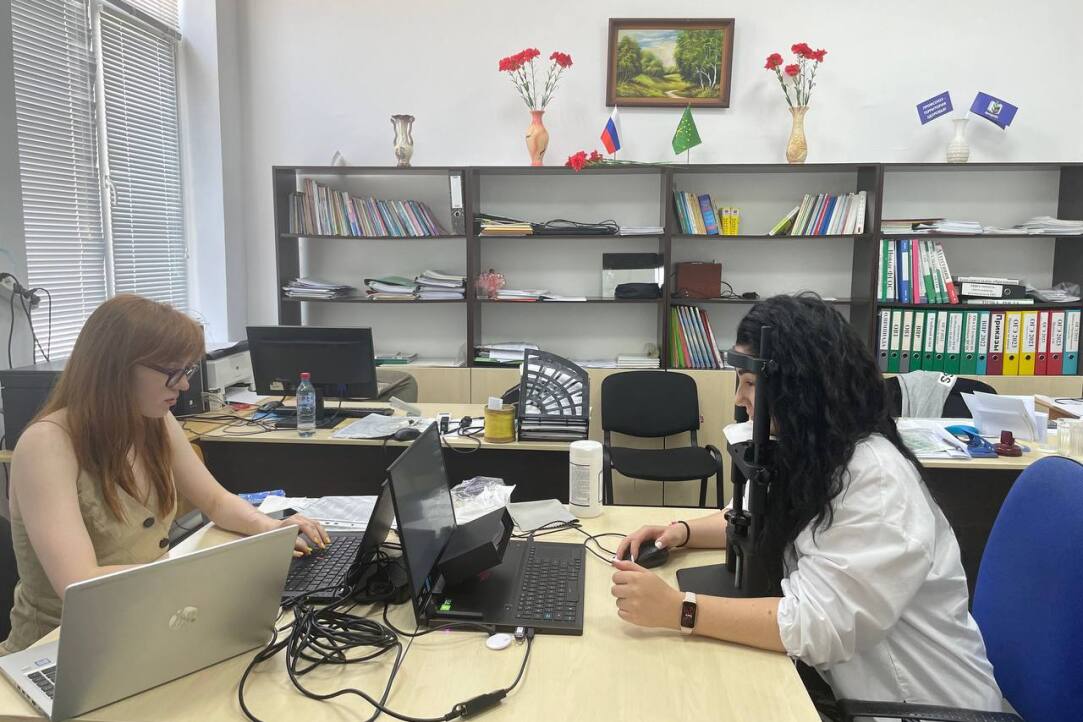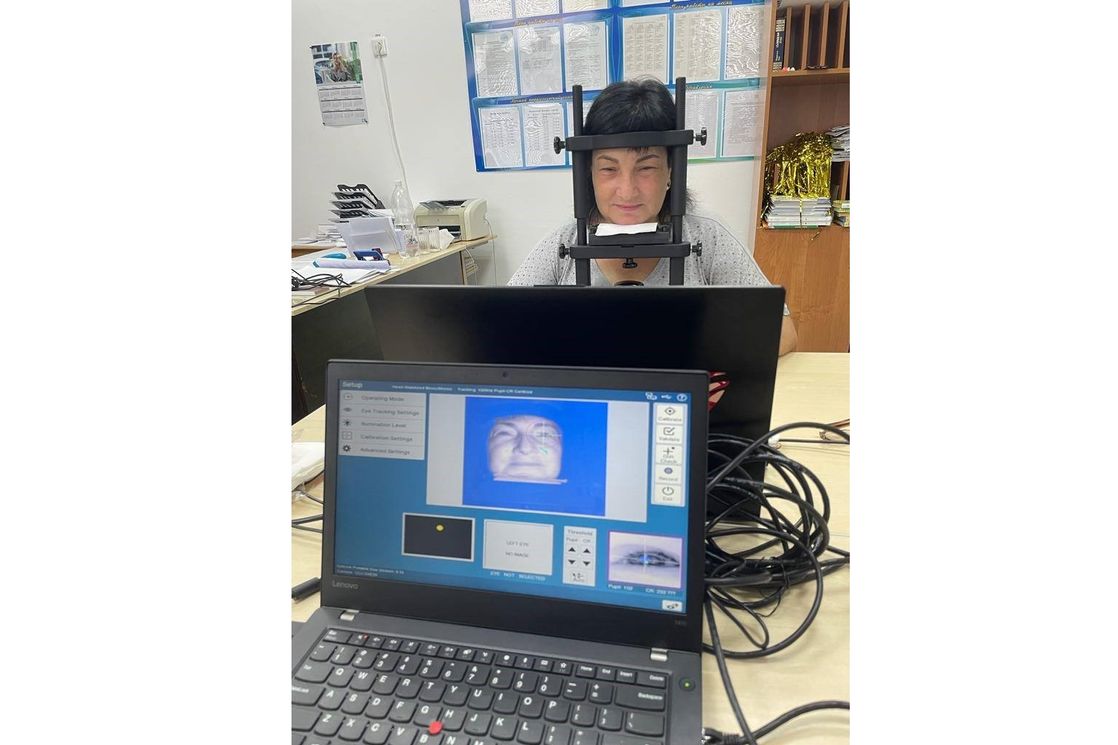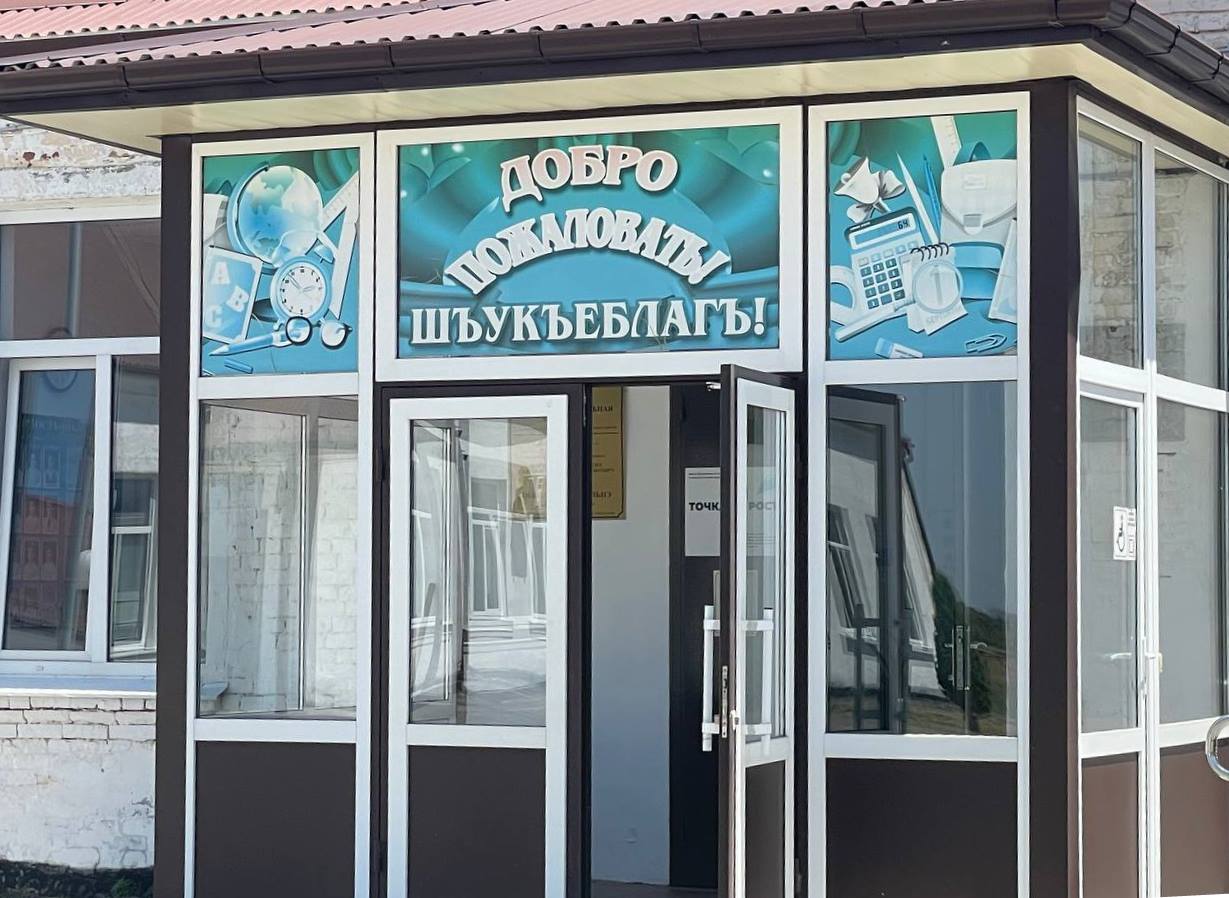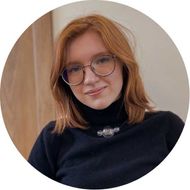Expedition Uses New Methods in Minority Language Studies

Researchers from HSE University’s Centre for Language and Brain, together with employees of Adyghe State University’s Laboratory of Experimental Linguistics, are conducting an expedition that is unprecedented in Russia: psycholinguistic field research into the Adyghe language and Russian-Adyghe bilingualism in a village in the Republic of Adygea.
Field expeditions are not a new phenomenon in linguistics. In Russia, HSE University’s School of Linguistics and other research centres hold them annually. As a rule, such expeditions are undertaken for the sake of little-studied and/or endangered languages in order carry out linguistic description (compiling a dictionary or describing the grammar of the language). Experimental linguistics, on the other hand, has always been conducted in laboratory conditions (or something close to them), especially when the use of complex equipment (recording of eye movements, electroencephalography) is involved. Only recently have global psycholinguistics specialists started to show interest in field expeditions, but so far there have been few examples. In Russia, the rigorous experimental method has never extended beyond city boundaries.
‘As a participant of international scientific conferences, I regularly hear reports from colleagues about the need to test psycholinguistic hypotheses on the basis of various languages. However, as a rule, the linguistic diversity in research has come from majority languages (Finnish, Chinese, Turkish),’ said Nina Zdorova, junior researcher at the centre. ‘Minority languages remain understudied in global psycholinguistics—this has fundamentally changed with our expedition.’
The experimental psycholinguistic expedition, which is being conducted for the first time by HSE University’s Centre for Language and Brain and Adyghe State University’s Laboratory of Experimental Linguistics, focuses on two studies.

The first is aimed at studying the mechanisms of eye movements while reading in the Adyghe language. Unlike most of the national languages of Russia, the Adyghe language is polysynthetic; in this language, a verb can convey the meaning of a whole sentence through a long sequence of affixes (for example, ‘he made him send you here’). The detailed mechanisms of reading in Russian were described only four years ago. Reading in polysynthetic languages has never been studied using psycholinguistic methods. Researchers from HSE University and ASU are currently working on recording the eye movements made by residents of an Adygea village while reading. These participants fully speak the language, in contrast to residents of cities where the Adyghe language has lost its dominance under the influence of Russian. A high-precision video oculograph (eye tracker) is used for this procedure.
‘Being a native speaker of the Adyghe language, I never thought about its complex and multifaceted structure,’ says Bela Ogly, a trainee researcher at the centre. ‘Every day it opens up to me from a completely new, previously unknown side. Research of this kind lets us not only make a significant contribution to science, but also to maintain interest in our language, which is no less important.’

The second area of focus is aimed at testing a hypothesis that has split the world of bilingualism research. Some scientists believe that bilingualism increases the so-called ‘cognitive reserve’ of a person. If a person regularly and actively uses several languages, switching between them, they constantly train their non-linguistic cognitive functions (attention, control, inhibition, etc). This affects the structure of their brain and makes the brain less susceptible to neurodegenerative processes in old age. Other scientists say the effects are small and disappear in more carefully controlled experiments. Indeed, groups of bilinguals and monolinguals with different socioeconomic and cultural status are often compared: for example, a region's indigenous inhabitants and migrants. It is rare to find an area in the world where bilinguals and monolinguals live in exactly the same conditions. In Russia, the Republic of Adygea is one such place. That is why it was chosen for testing the cognitive functions of mono- and bilingual residents to understand whether there really is a beneficial effect of bilingualism.
‘Of course, the expedition will result in fascinating new discoveries and scientific articles,’ says Olga Dragoy, Director of the Centre for Language and Brain. ‘But we also believe that such initiatives—as well as our interest in national languages and the use of research methods that are unusual for the field—all increase the prestige of national languages and stir up interest among their native speakers.’
See also:
Why Understanding of Texts Worsens with Age
Psycholinguists from the Centre for Language and Brain, HSE University, have found that to predict semantic relations between words when reading, older adults use their knowledge of the world instead of grammar more often than young adults. Reliance on the meaning of individual words instead of accurate grammar analysis allows for faster information processing, but sometimes causes misinterpretations. The study has been published by the Quarterly Journal of Experimental Psychology.
Predicting Grammatical Properties of Words Helps Us Read Faster
Psycholinguists from the HSE Centre for Language and Brain found that when reading, people are not only able to predict specific words, but also words’ grammatical properties, which helps them to read faster. Researchers have also discovered that predictability of words and grammatical features can be successfully modelled with the use of neural networks. The study was published in the journal PLOS ONE.
The Latest on Human Infants
Professor Emmanuel Dupoux , Paris, Ecole Normale Supérieure ( ENS) will visit the HSE, Moscow for a lecture entitled ‘Quantitative modeling of early language acquisition’ on November, 15, 2013. He shared a few ideas with the HSE news service and spoke about his research interests.





